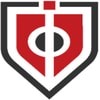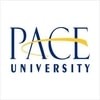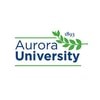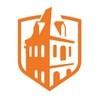Best Online Cyber Security Colleges
Get detailed information about best online Cyber Security colleges and their tuition, accreditation, career prospects, scholarships, admission details and much more
Online Cyber Security Colleges
Cyber Security program teaches a student about the ways and methods through which one can protect devices which are connected via the internet, including hardware, software, and data.
An Accredited Nursing School creates a pathway for the students to enrol in Cyber Security programs offered by the Colleges/Universities which are funded by the federal government or the state government.
The organizations that accredit Cyber Security schools and programs are listed below:
-
Higher Learning Commission
-
Applied and Natural Science Accreditation Commission (ANSAC)
-
Computing Accreditation Commission (CAC)
The subjects which are taught to the Cyber Security students are both theoretical and practical. Some of the subjects which are taught are Data Analysis, Cyber Defense, Cyber Threats, Fundamental Security Design Principles, Information Assurance Fundamentals, Intro to Cryptography, IT Systems Components, Networking Concepts, and System Administration.
An Associate’s degree in Cyber Security requires 60 to 68 credit hours to complete, which normally takes two years.
A Bachelor’s degree in Cyber Security requires almost 120 credit hours and takes four years to complete.
A Master’s degree in Cyber Security requires 36 to 54 credit points, which can be completed in two years.
A Doctorate’s degree in Cyber Security requires 60 to 64 credit hours, which can take three to five years to complete.
There are few requirements which need to be fulfilled before one applies for an admission in the cybersecurity program. The student should have a high school diploma with a minimum of 2.0- 3.0 GPA.
The Cyber Security program teaches an individual about the legal and ethical way of hacking and preventing any cyber threats, including computer coding and software languages.
Webster University
St. Louis, Missouri
Institution Type: Private Not-For-Profit
Cyber Security Accreditation: Request Info
Average Federal Student Loans awarded: $5,544
Average Student Loans Awarded: $6,843
Total Programs in Cyber Security (2)
1
Masters Program
1
Graduate Certificate Program
Western Governors University (WGU)
Salt Lake City, Utah
Institution Type: Private Not-For-Profit
Cyber Security Accreditation: Request Info
Average Federal Student Loans awarded: $5,142
Average Student Loans Awarded: $5,215
Total Programs in Cyber Security (2)
1
Bachelors Program
1
Masters Program
Western Michigan University (WMU)
Kalamazoo, Michigan
Institution Type: Public
Cyber Security Accreditation: Request Info
Average Federal Student Loans awarded: $5,738
Average Student Loans Awarded: $7,986
Total Programs in Cyber Security (1)
1
Graduate Certificate Program
Institution Type: Private Not-For-Profit
Cyber Security Accreditation: Request Info
Average Federal Student Loans awarded: $5,913
Average Student Loans Awarded: $8,000
Total Programs in Cyber Security (2)
2
Bachelors Programs
Pace University
New York City, New York
Institution Type: Private For-Profit
Cyber Security Accreditation: Request Info
Average Federal Student Loans awarded: $5,928
Average Student Loans Awarded: $8,390
Total Programs in Cyber Security (1)
1
Graduate Certificate Program
Aurora University
Aurora, Illinois
Institution Type: Private Not-For-Profit
Cyber Security Accreditation: Request Info
Average Federal Student Loans awarded: $5,200
Average Student Loans Awarded: $5,971
Total Programs in Cyber Security (1)
1
Bachelors Program
Angelo State University
San Angelo, Texas
Institution Type: Public
Cyber Security Accreditation: Request Info
Average Federal Student Loans awarded: $5,145
Average Student Loans Awarded: $5,697
Total Programs in Cyber Security (1)
1
Graduate Certificate Program
Campbell University
Buies Creek, North Carolina
Institution Type: Private Not-For-Profit
Cyber Security Accreditation: Request Info
Average Federal Student Loans awarded: $5,841
Average Student Loans Awarded: $7,160
Total Programs in Cyber Security (6)
2
Associate Programs
4
Bachelors Programs







